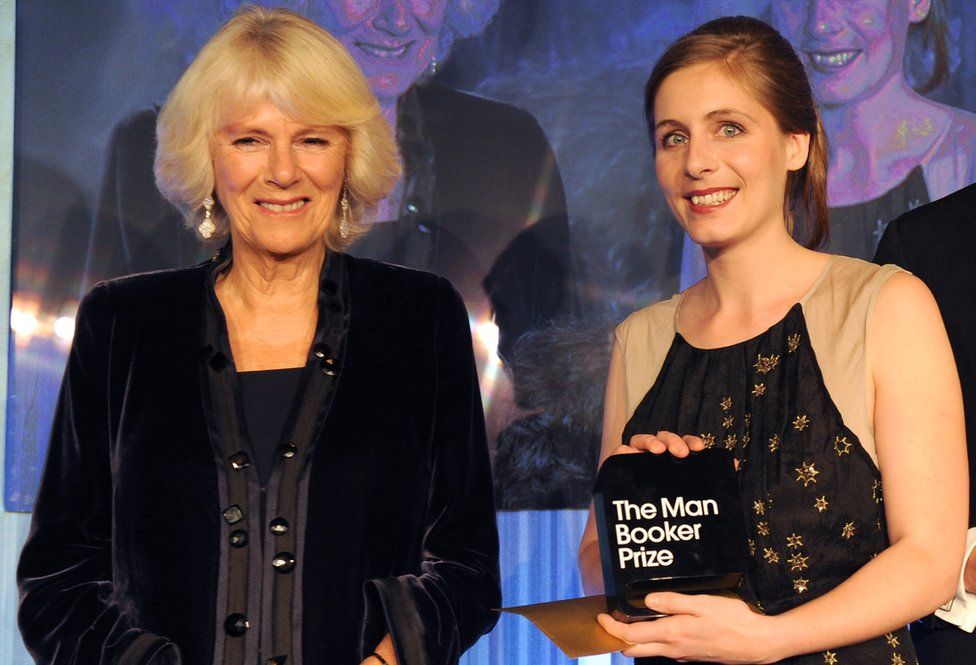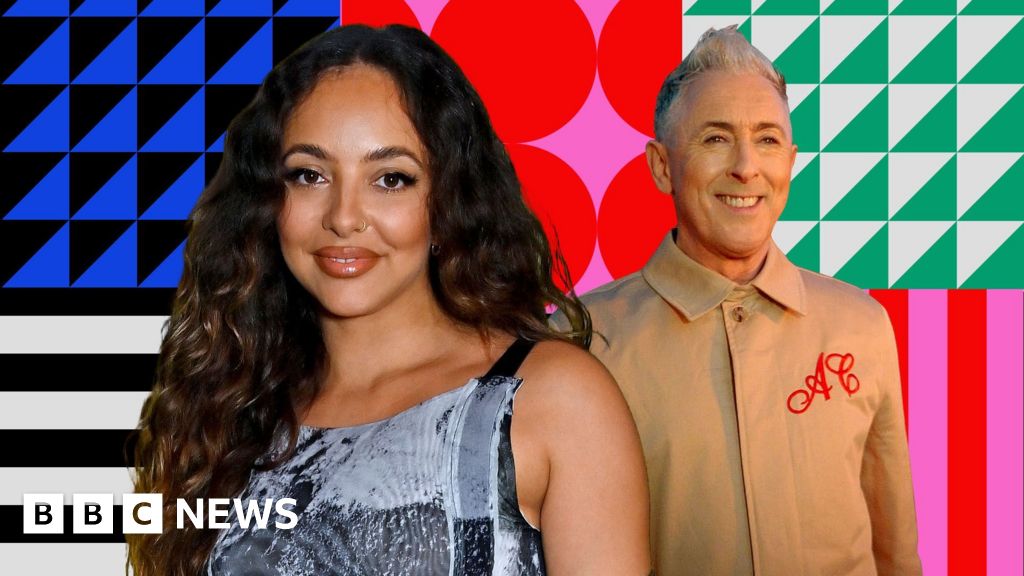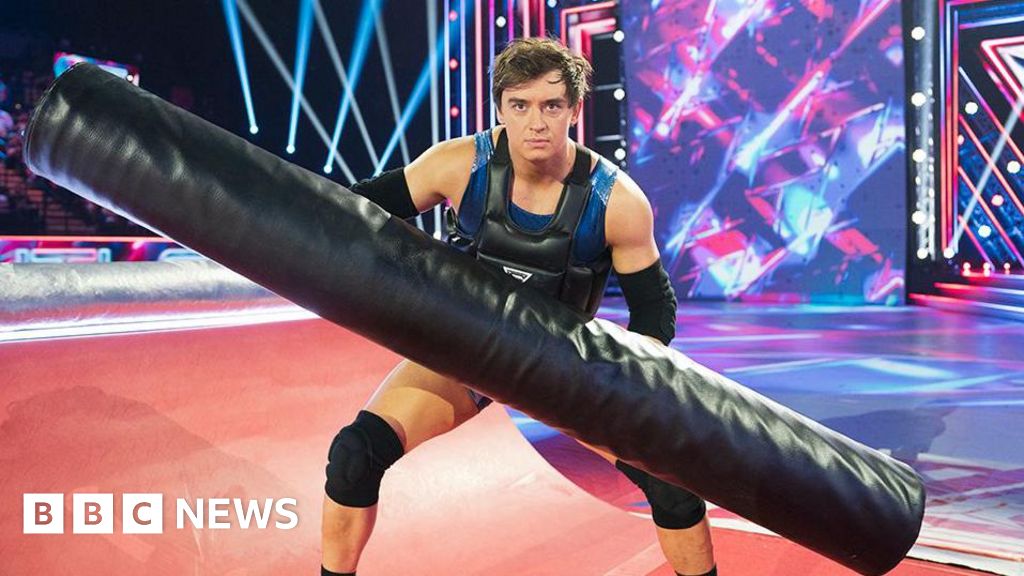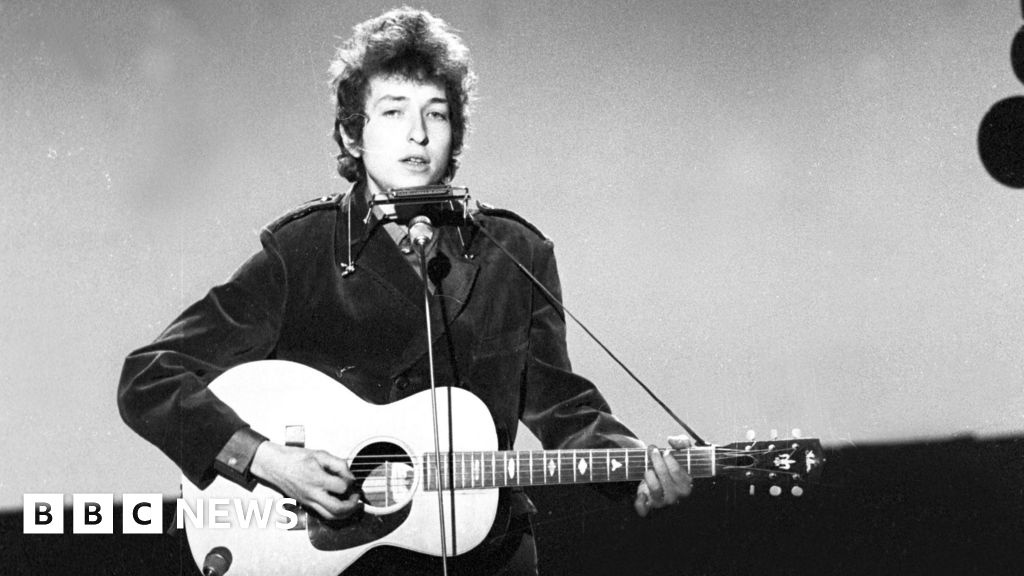ARTICLE AD BOX
 Image source, Getty Images
Image source, Getty Images
On Granta's 2023 list is Eleanor Catton, who was awarded the Man Booker Prize for her novel The Luminaries in 2013, by the then Duchess of Cornwall
By Katie Razzall
Culture and media editor
Granta has announced its 20 most significant British novelists aged under 40.
The literary magazine has published its Best of Young British Novelists list every 10 years since 1983.
Women dominate the 2023 list which, for the first time, includes international writers who view the UK as home.
Granta editor Sigrid Rausing described them as the "9/11 generation", who grew up affected by the war on terror, the 2008 financial crash and austerity.
The Granta list is a once-in-a-decade landmark, traditionally viewed as a barometer of Britain's literary landscape.
The inaugural Best of Young British Novelists picks, published in 1983, now read like a who's who of literary greats.
Martin Amis, Pat Barker, Julian Barnes, William Boyd, Salman Rushdie, Rose Tremain, Ian McKewan and Kazuo Ishiguro were amongst the highlighted young writers.
This Instagram post cannot be displayed in your browser. Please enable Javascript or try a different browser.View original post on Instagram
The BBC is not responsible for the content of external sites.
They went on to define British literature and some were well on their way even then.
Martin Amis had been publishing novels for a decade. Sir Salman Rushdie had already won the Booker prize with his magical realist masterpiece Midnight's Children in 1981.
But at the time many of the novelists were still relative unknowns.
Pat Barker was eight years away from publishing the first of her acclaimed Regeneration trilogy, the deeply arresting portrayal of shell-shocked soldiers in World War One.
Sir Salman Rushdie, seen in February after the attack on his life, was one of the authors championed by Granta in 1983
Kazuo Ishiguro had only just come out with his first novel, A Pale View of the Hills, with Remains of the Day, his moving portrait of a butler in class-obsessed Britain, another six years away.
Julian Barnes hadn't yet published his breakout novel, Flaubert's Parrot.
There's a lesson there for the 2023 list: aside from the most well read of folk, don't expect to recognise a lot of the names.
This decade's list is the first to be made up entirely of millennials (typically people born between 1981 and 1996). Every Granta-chosen writer was born after 1983, with the youngest just 26.
The 2023 list in full
Image source, Alice Zoo
Image caption,Included in the Class of 2023 is Graeme Armstrong, whose writing reflects his teenage years spent within Scotland's gang culture
- Graeme Armstrong
- Jennifer Atkins
- Sara Baume
- Sarah Bernstein
- Natasha Brown
- Eleanor Catton
- Lauren Aimee Curtis
- Eliza Clark
- Tom Crewe
- Camilla Grudova
- Isabella Hammad
- Sophie Mackintosh
- Anna Metcalfe
- Thomas Morris
- Derek Owusu
- K Patrick
- Yara Rodrigues Fowler
- Saba Sams
- Olivia Sudjic
- Eley Williams
Granta's picks include Graeme Armstrong, an author who writes in Scots dialect and spent his teenage years within North Lanarkshire's gang culture.
Montreal-born Sarah Bernstein's writing has been described as the "new millennium's answer to modernism", while Derek Owusu's writing fictionalises British Ghanaian culture.
Image source, Alice Zoo
Image caption,Derek Owusu whose writing is described as "delicate, lyrical and deeply poetic" makes it onto Granta's 2023 list
The judges, who include Rachel Cusk and Helen Oyeyemi, highlighted the diversity of the writers they have chosen, both in terms of geography and class.
Unlike, for example, the 1983 list, which now looks like a defining picture of the London literati, the judges believe the 2023 list is more representative of British society as a whole.
The authors hail from places as far afield as Cardiff, Edinburgh, Birmingham, Lancashire, the Isle of Lewis and London, as well as Sydney and New Zealand.
For the first time this year, under new criteria, an author can also be eligible if they normally live within the UK. On previous occasions, only writers with a British passport made the cut. Five of the authors chosen were not born in the UK.
Image source, Getty Images
Image caption,Eleanor Catton, already a Booker Prize winner, is now in Granta's Class of '23
They include the most recognisable name on the list, Eleanor Catton, who was born in New Zealand.
She won the Booker Prize in 2013 when she was just 28, for her Victorian gold rush epic The Luminaries, which she later adapted into a BBC drama.
Sara Baume was born in the UK but now lives on the south coast of Ireland where she is also an artist. She has written three novels.
K Patrick, who lives on the Isle of Lewis and identifies as non-binary, is a former greengrocer who previously told the Observer they had had an "impulse to write a horny lesbian novel."
That debut has not yet been published. Out in June, Mrs S tells the story of a young Australian woman who takes up a role at an elite girls' boarding school and has an affair with the head teacher's wife.
Image source, Alice Zoo
Image caption,Yara Rodrigues Fowler who also features in Granta's list this year, was described in 2019 as one of "the planet's 30 most exciting young people" by the Financial Times
Other settings for the works of the list's authors include a football match in Wales (Thomas Morris) and the shadow of the Grenfell Tower (Yara Rodrigues Fowler).
Rodrigues Fowler is a Brazilian-British novelist and activist from London. In 2019, the Financial Times named her one of the "planet's 30 most exciting young people" after she was credited with boosting youth turnout in the 2017 general election, when she co-created a bot that encouraged Tinder users to vote.
The youngest person on the list is Saba Sams, 26, whose collection of short stories Send Nudes was published last year.
Granta editor Rausing, who also who chaired the judges, said although she was hesitant to speculate on what the list tells us about the next generation or the state of the nation, "some common themes still emerge".
She pointed out that most of the writers are too young to have "experienced much of the brief period of hope" following the end of the Cold War.
There are, she said, "dystopian themes in the novels" but also "affection for the local". All the writers, we're told, are interested in experimental visions of the future.
The Granta list has traditionally been a prediction of the literary stars to come. Others through the decades have included Zadie Smith, Kamila Shamsie, Iain Banks, Jeanette Winterson and Ben Okri.
Luke Neima, deputy editor of Granta Magazine, told the BBC: "I think it's fair to say that these lists have always tried to look at the little known/up-and-coming alongside those who already have an audience, the idea being to pick out those who have the most promise to go on to become the best writers of their generation. Some will naturally get there faster than others."
That means some on the 2023 list aren't even well known enough to have their own Wikipedia page.
The list may change that.
Granta 163 (the 163rd edition of the magazine) which will showcase the talents of the fifth Best of Young British Novelists list, will be published on 27 April 2023.

 1 year ago
31
1 year ago
31








 English (US) ·
English (US) ·